
Biodegradable sealing sticker
Biodegradable labels are products made of cellulose paper and adhesive; It has the functions and characteristics of traditional plastics, and can be completely degraded into carbon dioxide, water, methane, and mineralized inorganic salts under natural conditions (such as soil, sand, seawater, etc.) or specific conditions (such as composting conditions, anaerobic digestion conditions, or aqueous culture media, etc.) by microbial action (such as bacteria, molds, fungi, and algae, etc.) after reaching the end of its service life. Ultimately, it will re-enter the ecological environment in a restored form, returning to nature without generating microplastic substances that may affect soil health. And it only takes one year to fully degrade, compared to labels made of ordinary polypropylene materials that take 20-30 years to fully degrade, and the degradation rate is affected by the soil environment
“ Approximately 80 billion pieces of clothing are manufactured globally each year, with 90% of them using plastic materials to fix price tags and product information labels. The main driving force behind our innovation is that in the clothing market, brands, retailers, and consumers are increasingly valuing environmental protection and sustainable development. In the future, we will continue to develop more environmentally friendly label solutions
In the post pandemic era, new consumer demands are emerging and a new consumption structure is accelerating. People are paying more and more attention to maintaining health and a strong physique, and are also placing greater emphasis on the safety, comfort, and environmental sustainability of clothing itself. The epidemic has made people more aware of human fragility, and more and more consumers have higher expectations for brands in terms of environmental protection and social responsibility
Degradation principle of biodegradable materials
The degradation principle of biodegradable materials mainly involves the comprehensive effect of microorganisms and their secretions under enzymatic or chemical decomposition. Specifically, the degradation process typically includes the following key steps:
-
Microbial secretion of hydrolytic enzymes: Under suitable conditions, bacteria, fungi, algae and other microorganisms in the soil will secrete hydrolytic enzymes outside the body, which can bind to the surface of the material.
-
Hydrolysis: Through the catalysis of hydrolytic enzymes, the high molecular weight chains on the surface of the material are cleaved, resulting in the formation of small molecular weight compounds.. This process is the core link of degradation, which gradually transforms polymer materials that were originally difficult to decompose into low molecular weight substances
-
Microbial Metabolism: Low molecular weight compounds generated by degradation are subsequently ingested by microorganisms, and through a series of metabolic processes, these compounds are ultimately converted into microbial biomass or energy for microbial activity, and discharged into the environment in the form of water and carbon dioxide.
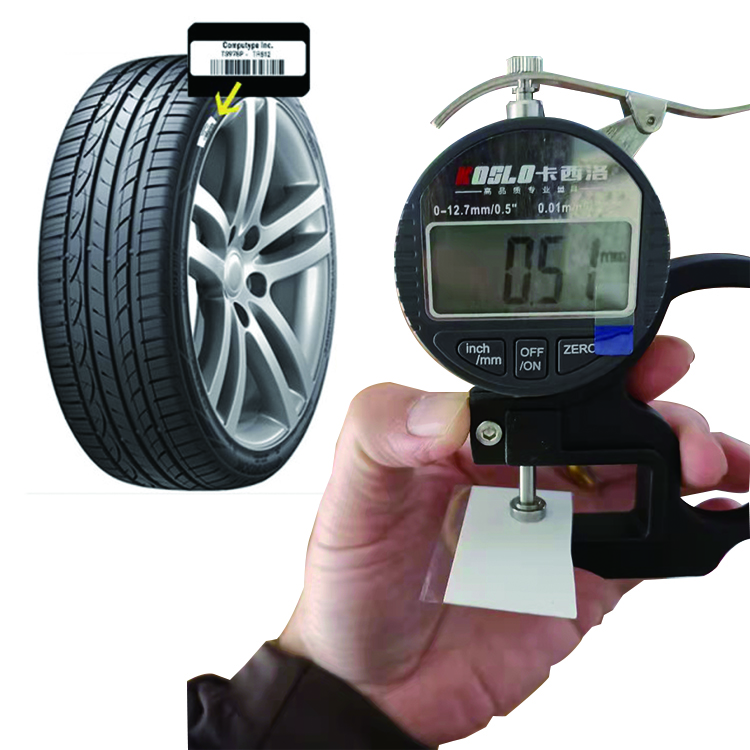
500um engineering tire vulcanization label
Excellent high temperature stability, able to withstand the heat and pressure of tires during high temperature and sulfur treatment (up to 210 ℃)
Excellent durability and wear resistance
Excellent chemical corrosion resistance: Strong waterproof, acid resistant, salt resistant, alkali resistant, most petroleum oil stains, oils and low-fat solvents, adhesives can penetrate into the concave surface and firmly bond to the softening agent that penetrates the tire surface. When the car is in operation, the barcode will not fall off on its own, and manual peeling will not damage the rubber on the tire surface
Excellent barcode/heat transfer printing effect, combined with Xiyan VR-30 carbon ribbon, ensures 100% accurate reading and scanning on the high-speed conveyor line before and after vulcanization
Excellent adhesion: When the tire is removed from the mold, it has strong flexibility to withstand tire deformation
| Physical properties | Testing Method | Average test result | |
| Thickness | ASTM D1000 test | US units | Standard unit |
| Substrate | 0.012in | 0.480mm | |
| Adhesive | 0.0010in | 0.026mm | |
| Total | 0.0108in | 0.51mm | |
| Initial adhesion (sticking to steel ball) | ASTM D3759 test | Approximately equal to 3 # steel ball | |
| Adhesive strength: | FTM8 test | >12 hours | |
| Temperature range | -40 to 428° F (-40~220° C) | ||
| Save expiration date | 73.4° F (23° C) Under 60% relative humidity, it is 1 year | ||
| UL index number | To be tested | ||
| UL testing carbon ribbon | OwnLikes VR-30 | ||
All SI units are calculated from the commonly used units in the United States

350um tire vulcanization label
Excellent high temperature stability, able to withstand the heat and pressure of tires during high temperature and sulfur treatment (up to 210 ℃)
Excellent durability and wear resistance
Excellent chemical corrosion resistance: Strong waterproof, acid resistant, salt resistant, alkali resistant, most petroleum oil stains, oils and low-fat solvents, adhesives can penetrate into the concave surface and firmly bond to the softening agent that penetrates the tire surface. When the car is in operation, the barcode will not fall off on its own, and manual peeling will not damage the rubber on the tire surface
Excellent barcode/heat transfer printing effect, combined with Xiyan VR-30 carbon ribbon, ensures 100% accurate reading and scanning on the high-speed conveyor line before and after vulcanization
Excellent adhesion: When the tire is removed from the mold, it has strong flexibility to withstand tire deformation
| Physical properties | Testing Method | Average test result | |
| Thickness | ASTM D1000 test | US units | Standard unit |
| Substrate | 0.012in | 0.350mm | |
| Adhesive | 0.0010in | 0.026mm | |
| Total | 0.0108in | 0.376mm | |
| Initial adhesion (sticking to steel ball) | ASTM D3759 test | Approximately equal to 3 # steel ball | |
| Adhesive strength: | FTM8 test | >12 hours | |
| Temperature range | -40 to 428° F (-40~220° C) | ||
| Save expiration date | 73.4° F (23° C) Under 60% relative humidity, it is 1 year | ||
| UL index number | To be tested | ||
| UL testing carbon ribbon | OwnLikes VR-30 | ||
All SI units are calculated from the commonly used units in the United States
We offer comprehensive technical support, including free professional labeling solutions, advice on label materials and adhesive selection, as well as online/offline assistance from professional software and hardware engineers. Service email: andy@ownlikes.cn. In pre-sales, we leverage our extensive experience in specialty labeling projects to provide clients with the most suitable hardware solutions. Additionally, all our label barcode printers and scanners come with a three-year free warranty, demonstrating our confidence in our products.


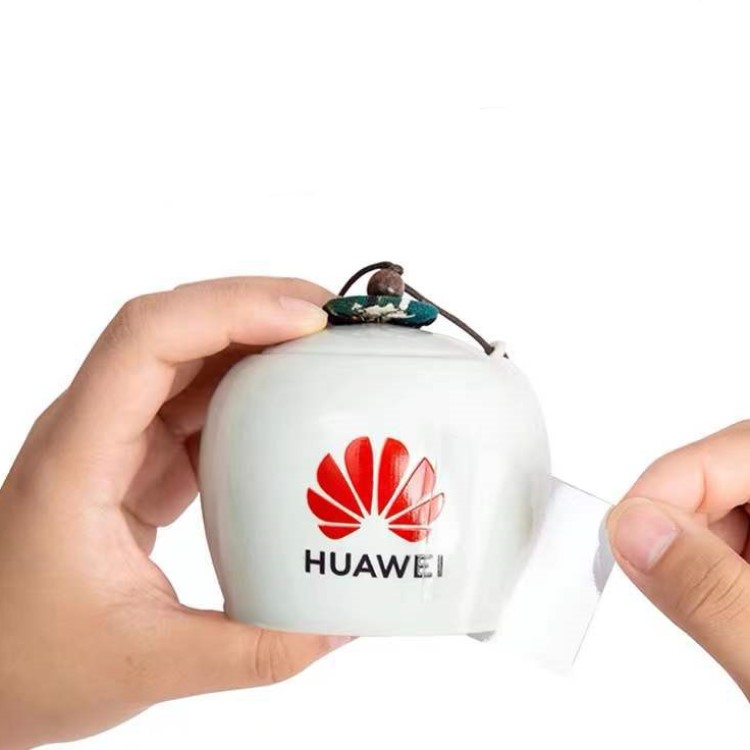
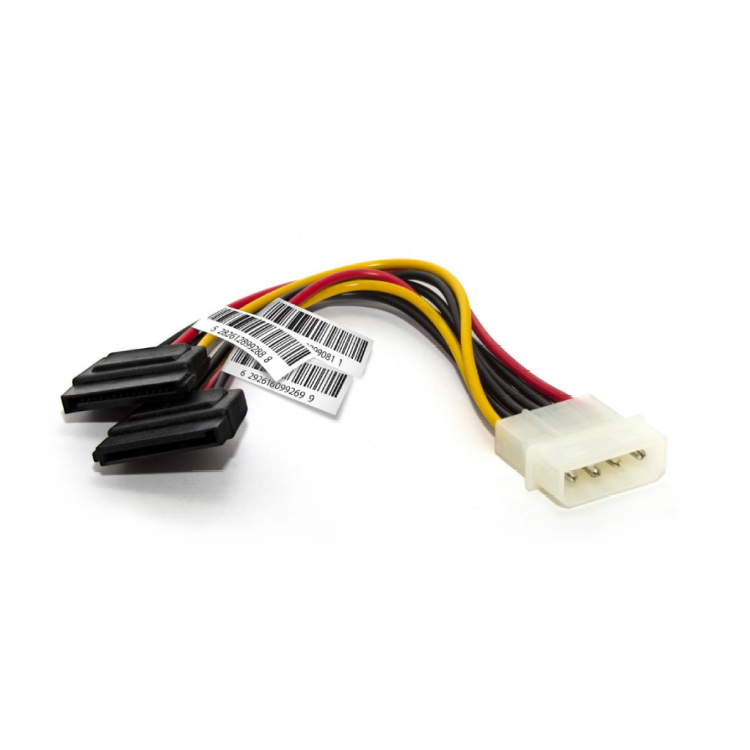
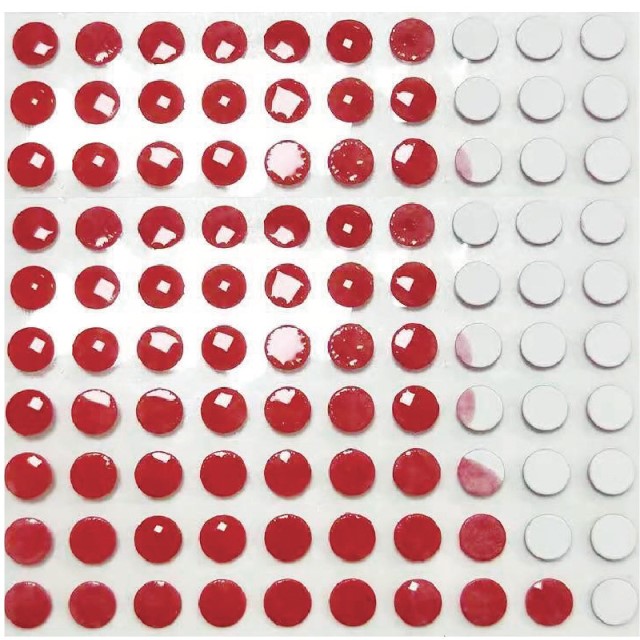
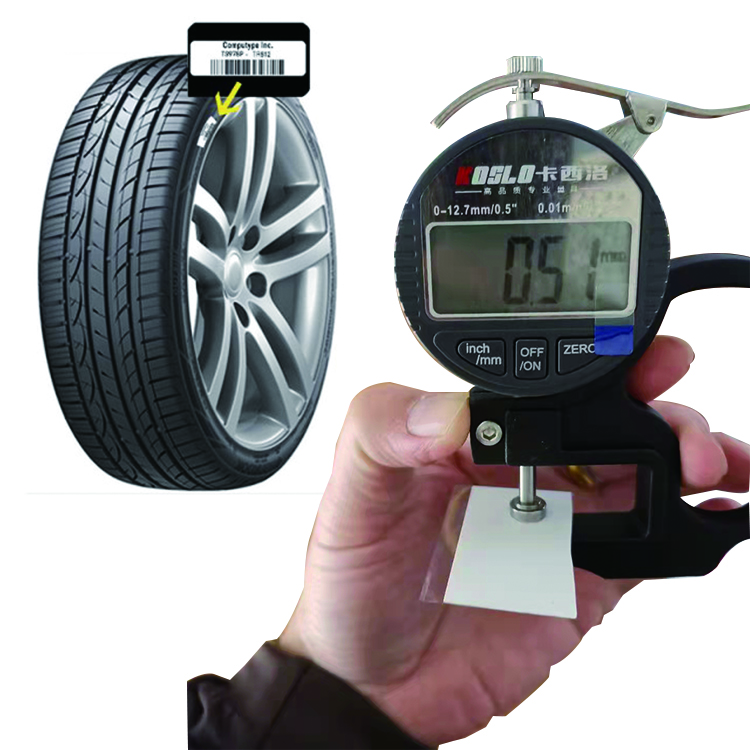
This site is protected by reCAPTCHA and the Google Privacy Policy and Terms of Service apply.